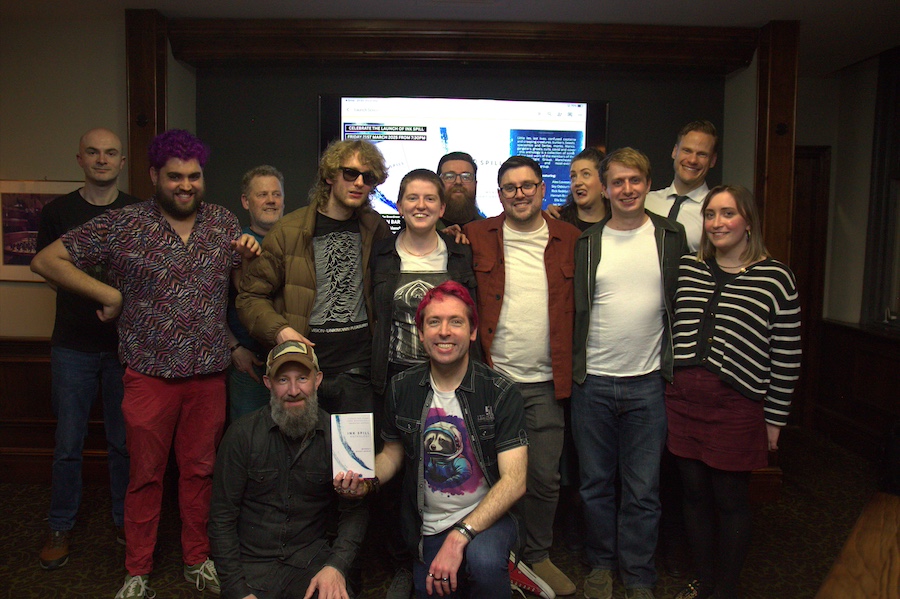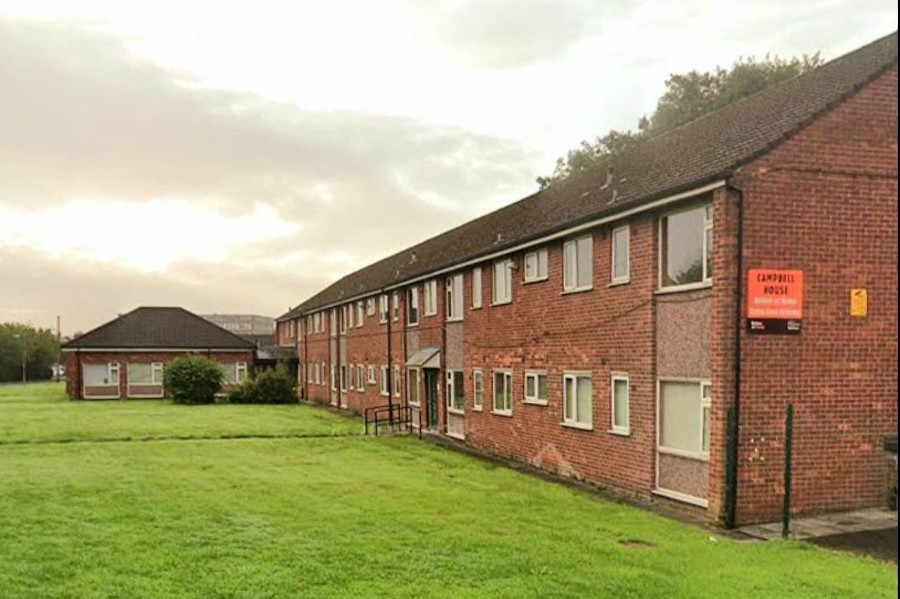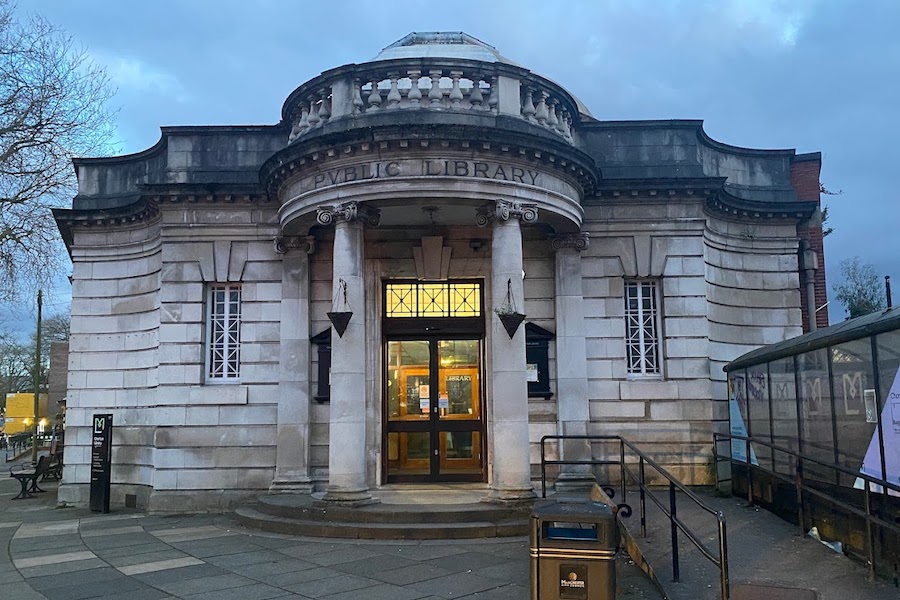The miner’s son who conquered the world of football – the remarkable journey of Sir Bobby Charlton
- Written by Thom Bamford
- Last updated 1 year ago
- City of Manchester, Cornerstone, Featured, Man Utd, People
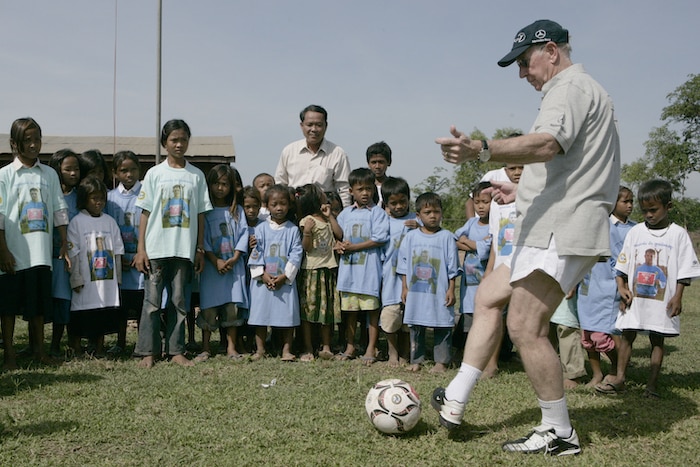
The football world stands in solemn tribute as it mourns the passing of a true legend and one of England and Manchester’s most revered sporting figures, Sir Bobby Charlton.
With a heavy heart, we bid farewell to the man whose mark on the beautiful game transcended and inspired generations.
“Words will never be enough” is how Manchester United’s social media team announced the death of Sir Bobby Charlton, aged 86.
It was a fitting way to describe the life of the majestic midfielder, who had cheated death, experienced the most torturous pain imaginable and then came back to lead his club to European glory and inspire England to win the World Cup.
Charlton won three league titles, an FA Cup and the European Cup with Manchester United and was one of the greatest footballers ever produced in his country.
In a 17-year playing career, he scored 249 goals in 758 appearances for the Reds and also helped England win the World Cup in 1966.
This obituary pays homage to a true footballing icon and national hero, highlighting his extraordinary life and legacy.
Early Life and Footballing Beginnings
Sir Bobby Charlton: The Road to Stardom
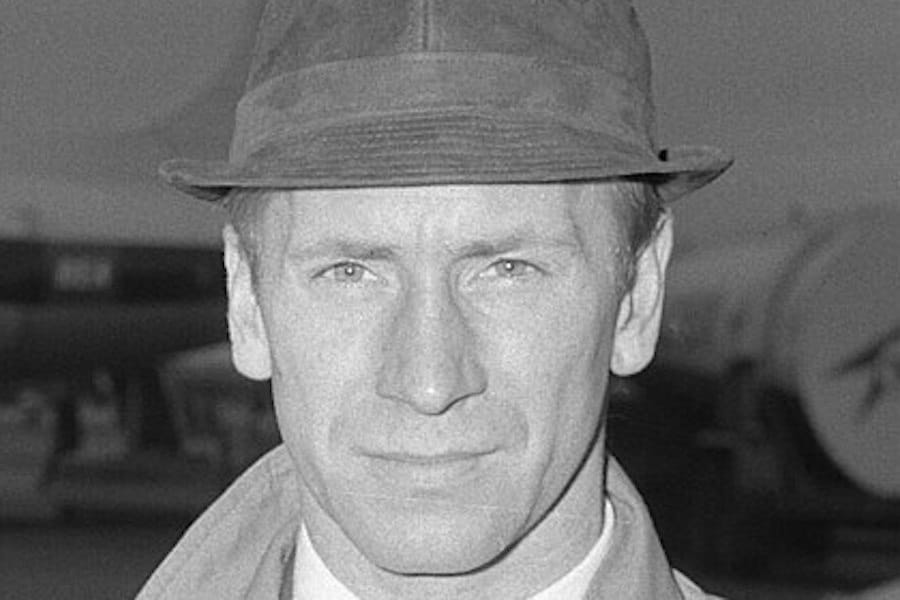
Bobby Charlton’s journey in football began in Ashington, Northumberland, on October 11, 1937.
From a young age, it was evident that he possessed a prodigious talent for the sport.
Bobby’s passion for the game was nurtured and grew under the watchful eye of his mother, Cissie, and the guidance of his grandfather, Tommy Milburn, a former professional footballer.
Charlton’s Breakthrough: The Busby Babes
As a bright young talent, Bobby Charlton was scouted by none other than the legendary Sir Matt Busby, who brought him into the fold at Manchester United.
The young Charlton quickly established himself as a key figure in the “Busby Babes” – a group of exceptionally talented youngsters who captured the hearts of football fans around the world.
Surviving the Munich Air Disaster

In 1958, tragedy struck when the Munich Air Disaster claimed the lives of several Manchester United players.
Miraculously, Bobby Charlton survived the crash, along with his manager, Sir Matt Busby.
At the age of 20, Bobby Charlton found himself among the youthful members of the Manchester United team, returning to Manchester from Belgrade after securing their spot in the European Cup semi-finals.
The fateful journey took them to Munich, where their plane made a stopover for refueling. Tragedy struck during the attempted takeoff, as the aircraft suffered two aborted attempts and ultimately crashed into the runway, claiming the lives of 23 people.
Amidst the chaos, Bobby Charlton’s was the last survivor to be located, still securely fastened to his seat, nearly 40 yards from the wreckage.
However, his survival was not without its share of physical and emotional scars.
Charlton endured a deep cut to his head and was swiftly rushed to the hospital.
When he awoke the following day, a fellow patient in the adjacent bed began to read a chilling report of the crash.
This impromptu roll call delivered a devastating blow to Charlton as each name on the list represented a life lost.
Heartbreakingly, eight of those names were his teammates, and three of them were his closest friends: Eddie Coleman, David Pegg, and Tommy Taylor.
Physically, Charlton was fortunate to escape the crash with no broken bones, but the psychological trauma left an enduring mark on him. The incident led him to contemplate the possibility of stepping away from the game entirely.
“In so many ways, I was part of the horror, but I was also, in the strangest way, detached,” Charlton would later reflect in his autobiography.
“It was almost as if I was disembodied, a silent, traumatised participant in a terrible dream I could neither act in, nor escape from.”
The unanswered question of “Why me?” weighed heavily on Charlton. He found himself questioning why he emerged with nothing more than a minor head injury while so many of his friends and teammates had perished.
The magnitude of the event and the promising futures cut short in an instant left him bewildered.
As time passed, the enormity of the disaster sunk in, prompting him to recognise the sheer luck that had preserved his life.
“I thought ‘Why me?’ Why am I here with nothing other than a little gash on the head and all these other friends had been killed?
I felt it wasn’t fair, why should it be me?” Charlton recalled. “It was such a momentous event, for so many young people to die just on the verge of the great success that was ahead of them, and I couldn’t understand why.
We walked away. A few days later you realised the enormity of what had happened, then you started thinking about how lucky you’d been. I was so lucky.”
Bobby Charlton’s survival was indeed a stroke of fortune, but it came at a profound emotional cost, leaving him with lasting memories of that tragic day in Munich, a burden he would carry throughout his life.
World Cup Glory
Bobby Charlton: A National Hero
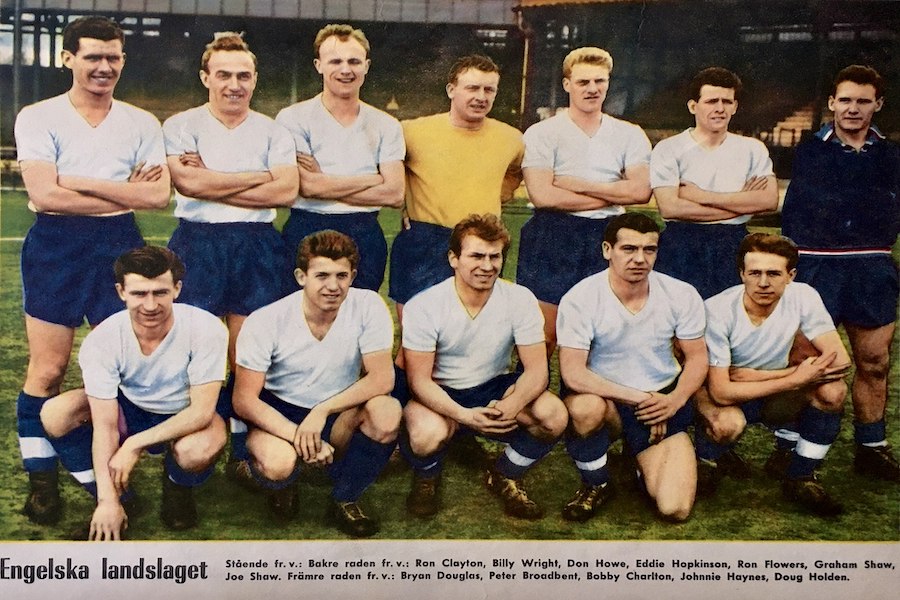
The 1966 FIFA World Cup held in England was a defining moment in Bobby Charlton’s career.
It was on this grand stage that Charlton, with his powerful strikes and remarkable ability to control the midfield, played an instrumental role in England’s historic World Cup victory.
Sir Bobby Charlton played a pivotal role in England’s historic World Cup win in 1966. His contributions to the team’s success were instrumental, and he was one of the standout performers during the tournament.
Charlton’s performances in the midfield were exceptional. He was known for his exceptional ball control, accurate passing, and ability to dictate the tempo of the game. His presence in the midfield was crucial in maintaining possession and creating goal-scoring opportunities.
Charlton displayed great leadership and composure on the field. In high-pressure situations, he remained calm and made key decisions that helped the team. His experience and maturity were evident throughout the tournament.
He scored three tournament goals, just behind top goalscorer, Geoff Hurst’s four.
This win remains one of the proudest moments in English football history.
Awards and Achievements
Bobby Charlton’s Legacy of Success
Throughout his illustrious career, Sir Bobby Charlton accumulated numerous accolades and records.
Among his remarkable achievements were three First Division titles with Manchester United, the Ballon d’Or in 1966, and 106 caps for the England national team.
He held the record for England’s all-time top scorer until Wayne Rooney surpassed it in 2015.
The Manchester United Connection
Bobby Charlton: The Heart of Old Trafford
The Theatre of Dreams, Old Trafford, became Bobby Charlton’s second home.
His dedication to Manchester United, both as a player and later as a director, was unwavering.
His presence at the club was a testament to his love for the sport and his commitment to nurturing young talents.
Alex Ferguson even credited Sir Bobby for his career at United.
Off the Pitch
Charity Work and Philanthropy
Beyond his remarkable footballing career, Bobby Charlton was known for his charitable endeavours.
In 2008, he established the “Sir Bobby Charlton Foundation” to combat landmines and help children affected by conflict. His legacy extends far beyond the football pitch.
Bobby Charlton: A Humble and Gentle Soul
Despite his immense fame and success, Bobby Charlton remained a modest and humble individual.
His dedication to football was matched by his respect for fellow players, coaches, and fans.
He embodied the ideals of sportsmanship and camaraderie.
Personal Life and Family
The Charlton Family
Bobby Charlton’s family was a pillar of strength throughout his life.
He was married to Norma Ball, his childhood sweetheart, for 61 years until her passing in 2019.
He is survived by his three children – Suzanne, Andrea, and Robert.
The Final Farewell
Bobby Charlton: A Nation’s Grief
The passing of Sir Bobby Charlton has left a profound void in the world of football.
The outpouring of tributes from fans, players, and fellow professionals from around the globe is a testament to the impact he had on the game.
England has lost a national treasure, and the world has lost a footballing icon.
Sir Bobby Charlton’s life was full of triumphs and tribulations, but above all, it was a story of dedication, redemption and passion for the beautiful game.
As we bid farewell to this gentle giant of football, let us remember his indomitable spirit, his boundless love for the sport, and his lasting legacy.
Sir Bobby Charlton’s name will forever be etched in the annals of football history, and his memory will continue to inspire generations of footballers and fans.
The Footballing World on Sir Bobby Charlton
Wayne Rooney
“I’m still in shock. I came out for the second half and didn’t really know what was happening, then it hit me. Sir Bobby was always great with me, we had conversations not just about football but about life. He’s a huge loss to football and a huge loss to his family, more importantly. He’ll be greatly missed.”
Sir Alf Ramsey
“He was one of the greatest players I have seen, very much the linchpin of the 1966 team,” Ramsey said.
“Early in my management, I knew I had to find a role suitable to Bobby’s unique talents.
“He wasn’t just a great goalscorer, with a blistering shot using either foot. Bobby was a player who could also do his share of hard work.”
Sir Matt Busby
“There has never been a more popular footballer. He was as near perfection as man and player as it is possible to be,” Busby said.
England Manager Gareth Southgate
“One of our most iconic players, Sir Bobby Charlton’s impact on our only World Cup triumph is there for all to see.
“The privilege of meeting him on several occasions allowed me to understand his personal pride and emotion in having represented England and simply confirmed in my mind his standing as one of the gentlemen of the game.
George Best
“What a pleasure to play alongside,” Best told FourFourTwo. “I don’t think I’ve ever seen anybody who could beat players as easily as him, myself included.
“I often used my pace, but Bobby made it look effortless. And once he got within 30 yards of the goal, he was lethal with either foot.
“Because he played a lot on the left, many people assume he was a natural left-footer, but I don’t think he was. He was just so good with both feet.”
FIFA President Gianni Infantino
“On behalf of FIFA, and the global football family, I send my deepest condolences to the family and friends of Sir Bobby Charlton.
“We mourn the loss of one of England’s 1966 FIFA World Cup winning team and a football legend, whose impact on the game spanned generations.”
Rio Ferdinand
“What a true gentleman of not many words, but when he spoke you stood still, stopped what you were doing and listened. A lot of the history was living and breathing through him and he was a constant at the club while I was there, travelling with us all over the world. Win, lose or draw he would be in the changing room wishing us well.
“The words he shared with me at the bottom of those stairs in Moscow, before I went up to lift the Champions League trophy, will stay with me forever.
“What it meant to lift that trophy for United, what it meant for the fans, what it meant for us as a team and what it now meant for myself doing it as captain. It was a privilege for me to even get that moment with him at that specific time.”
Denis Law
“The game is never easy but it becomes easier when you’ve got players like that,” Law told MUTV in 2016.
“Bobby had a bit of everything. He was a marvellous crosser of a ball and scored a tremendous amount of goals. He had a fantastic shot, it was so powerful.
“I knew if he was going to shoot there was a fair chance the goalkeeper wouldn’t be able to hold it, so I would follow up and invariably the guy would drop it.”
David Sadler
“You can’t go anywhere in the world without talking about Manchester (United) and Sir Bobby Charlton, they just go hand in hand,” Sadler said. “They were just made for one another, and he certainly upholds everything that is good about Manchester United.”
Lou Macari
“I played with him briefly toward the end of his United career, and he was just gobsmacking to witness,” Macari told FourFourTwo in 2008.
“He was 35 when I got to Old Trafford, and he was as fit and enthusiastic as a 25-year-old. He’d done so much, but his desire never faded – his work-rate kept him right at the top. He was still trying to improve.”
Sir Geoff Hurst
“He was a naturally gifted player, and was two-footed as well, one of the most two-footed players you’ve ever seen,” Hurst said. “He could go either side, shoot with either foot.”
Sir Alex Ferguson
“I owe my life here to Bobby,” Ferguson said in 2016. “He always believed in me and, apart from being the greatest legend at this club and the greatest player, it’s been a wonderful pleasure to know you.
“My time at United has been laced with all these great moments, but none more so than my friendship with Bobby, and what he’s done for me.
“The great attribute of Bobby – and it’s a great example to anybody who has been successful – is how he’s kept his feet on the ground and retained his humility all his life.”
Franz Beckenbauer
“Bobby Charlton was known for his creativity. He was on the move for 90 minutes, and had the lungs of a horse,” Beckenbauer said.
Eusebio
“Charlton, as we all know, covered the whole pitch,” Eusebio told FourFourTwo. “Played on the left, on the right, in the middle. He never stopped running and he had a very powerful shot and scored a lot of great goals.
“I have many more good than bad memories from my career, but some of the bad memories come from when I crossed paths with Bobby Charlton.
It was Bobby Charlton who spoiled my day in the World Cup semi-final of 1966 and later the European Cup final of ’68, but I’ve forgiven him and we are still good friends now. He’s a real English gentleman.”
Michel Platini
“Sir Bobby represents everything that is good about the game of football; fair play, respect, and true loyalty and he is a good example for future generations, both on and off the pitch,” Platini said in 2009.
Ryan Giggs
“I think he just epitomises Manchester United,” Giggs told MUTV in 2016. “He was one of the best players there’s ever been and he’s someone who is humble, approachable and who oozes class.
“He’s a great person to know and he’s someone who has inspired me and helped me throughout my career.”
David Beckham
“That’s how my career started at Manchester United. I went to [the Bobby Charlton soccer school] at 10 years old and went back there the year after and ended up winning the competition,” Beckham told the BBC in 2017.
“That was when Sir Bobby contacted Manchester United and said ‘maybe you should have a look out for this young kid’.
“So I owe everything to Sir Bobby because, if not, maybe I wouldn’t have had the chance of living my dream of playing for the club that I’d supported for so many years and the club my Dad supported.
“He has always been about being successful, but even more so about helping other people. That’s what’s so special about him – he’s respected on the field, but even more so off the field.”
- This article was last updated 1 year ago.
- It was first published on 23 October 2023 and is subject to be updated from time to time. Please refresh or return to see the latest version.
Did we miss something? Let us know: press@ilovemanchester.com
Want to be the first to receive all the latest news stories, what’s on and events from the heart of Manchester? Sign up here.
Manchester is a successful city, but many people suffer. I Love Manchester helps raise awareness and funds to help improve the lives and prospects of people across Greater Manchester – and we can’t do it without your help. So please support us with what you can so we can continue to spread the love. Thank you in advance!
An email you’ll love. Subscribe to our newsletter to get the latest news stories delivered direct to your inbox.
Got a story worth sharing?
What’s the story? We are all ears when it comes to positive news and inspiring stories. You can send story ideas to press@ilovemanchester.com
While we can’t guarantee to publish everything, we will always consider any enquiry or idea that promotes:
- Independent new openings
- Human interest
- Not-for-profit organisations
- Community Interest Companies (CiCs) and projects
- Charities and charitable initiatives
- Affordability and offers saving people over 20%
For anything else, don’t hesitate to get in touch with us about advertorials (from £350+VAT) and advertising opportunities: advertise@ilovemanchester.com
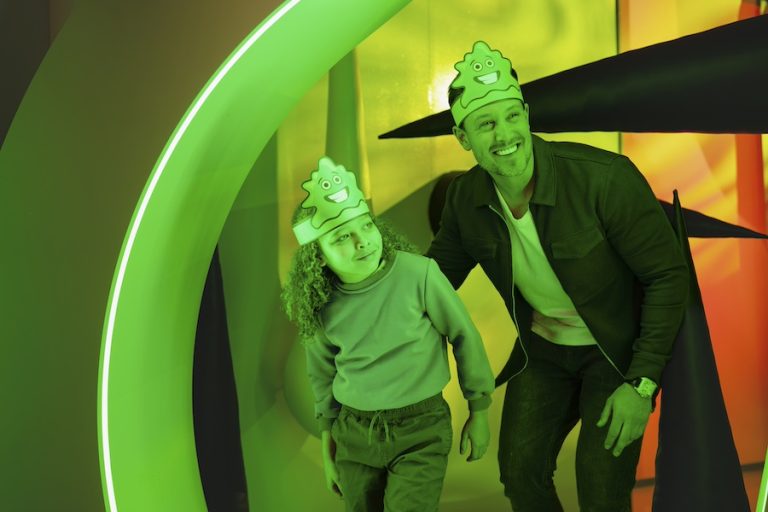
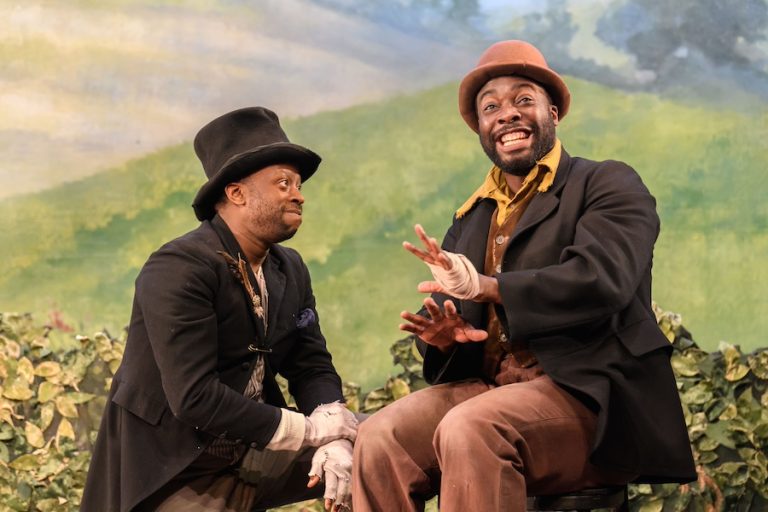
Review: Tambo & Bones at HOME is ‘ambitious, bold, gutsy…. and terrific’

Review: JB Shorts 26 at 53two is ‘a five-star showcase of northern talent’









